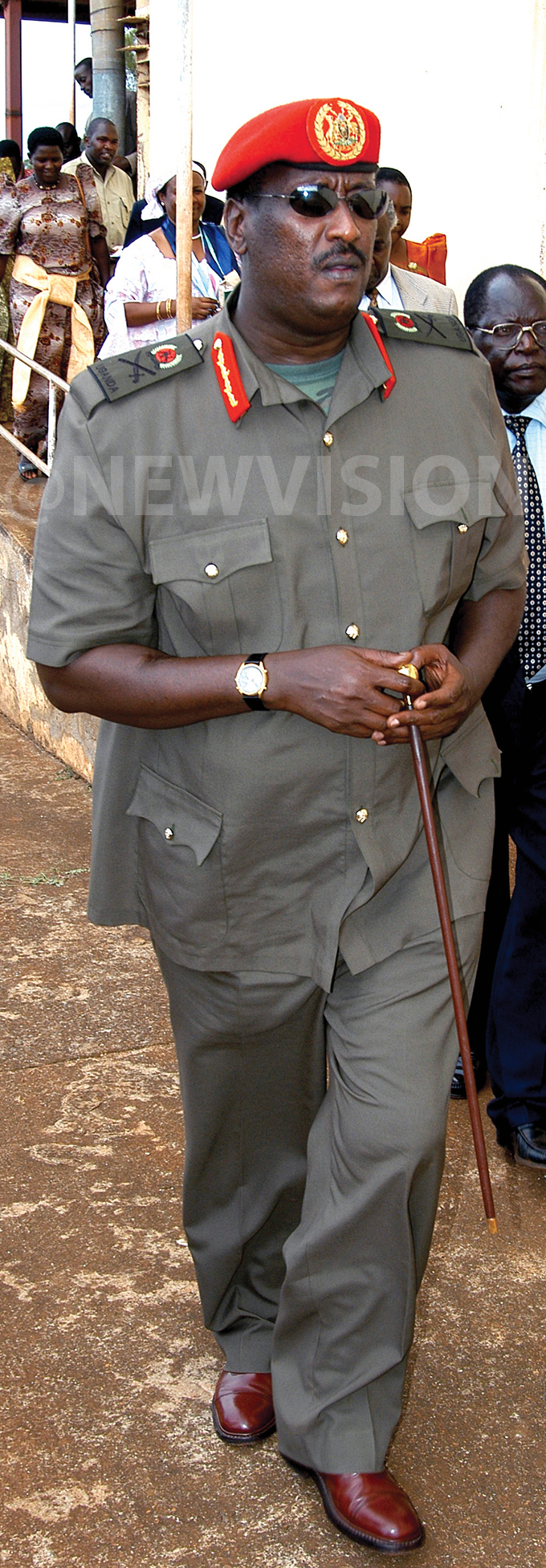What you did not know about Gen. Salim Saleh
Nov 05, 2019
Saleh was part of a core group of ‘hardened’ fighters trained at Montepuez, like late Maj. Gen. Fred Rwigyema, who was as daring as a devil. Others included Gen. Ivan Koreta, the late Chefe Ali and Ayeli Pipino.

Credited for being a shrewd commander and military strategist, Gen. Caleb Akandwanaho aka Salim Saleh left active military service in the early years of the National Resistance Movement regime, taking on non-combat roles at different times.
He led the veterans and reserve force, became minister, senior presidential advisor and recently, he was appointed the commander of Operation Wealth Creation, a scheme expected to fight poverty out of Uganda.
Not many years ago, Gen. Salim Saleh publicly declared that he had quit his portfolio as minister in charge of micro-finance.
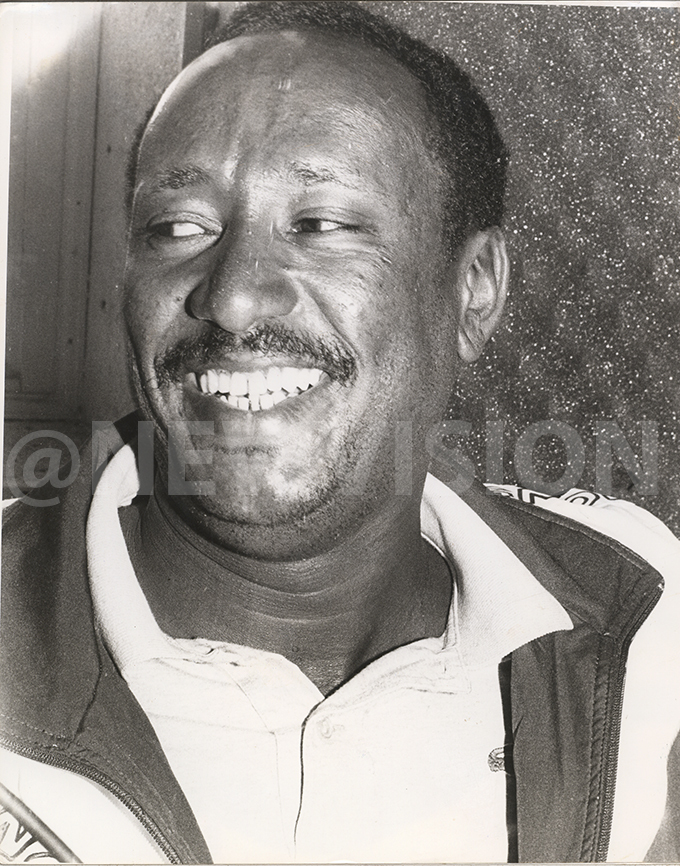
A Ugandan minister quitting voluntarily? How about a minister confessing to an unauthorised commission and then surrendering the money to the Government? Not in Uganda, many would say. A typical Ugandan minister is either reshuffled out of cabinet or censured. If they must resign, it is usually a result of a scandal or after getting an international job.
However, Salim Saleh did the seemingly unusual. The former state minister for micro-finance publicly declared he had quit his portfolio, citing frustration with the bureaucracy in the system, which delayed his efforts to lift the poor out of poverty.
Early years
The younger brother of President Yoweri Museveni was born two years nbefore Uganda attained independence, in 1960, to Amos Kaguta and Esteri Kokundeka. Saleh went to Kako SS for his secondary education. However, this was cut short after he visited his elder brother Museveni in Tanzania.
"I was 16 years and when I went to Tanzania, I joined other colleagues to train in Mozambique," he says.
By 1979, Saleh had already trained as a commando in Mozambique and fought in the war that uprooted dictator Idi Amin Dada in 1979.
Saleh was part of a core group of ‘hardened' fighters trained at Montepuez, like late Maj. Gen. Fred Rwigyema, who was as daring as a devil. Others included Gen. Ivan Koreta, the late Chefe Ali and Ayeli Pipino.
When the war broke out, Saleh stayed in Tanzania as a liaison officer between the Tanzanian and FRONASA forces, but later joined the war effort and commanded a company up to West Nile.
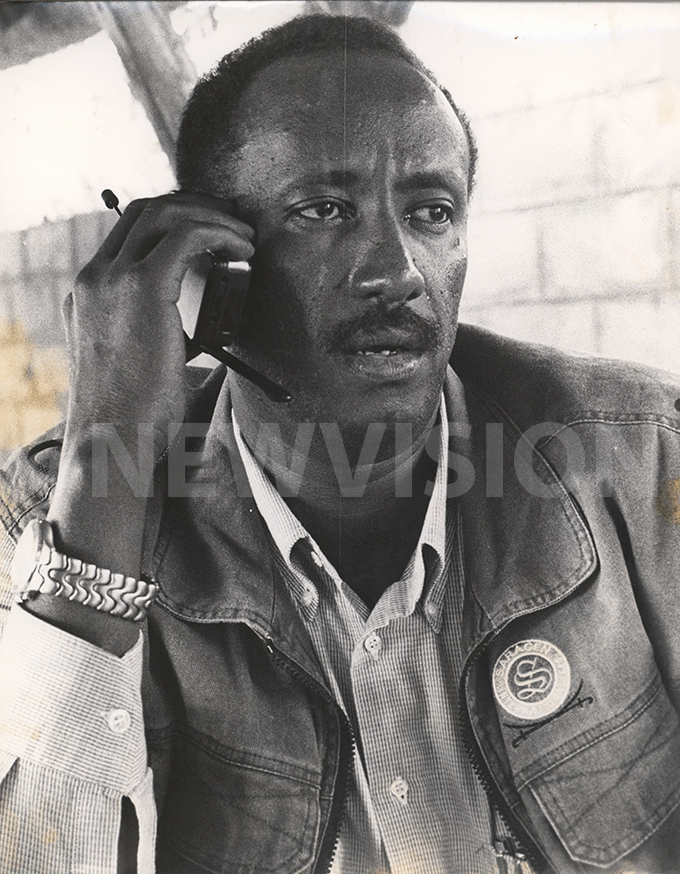
Young commander
Later, the Uganda National Liberation Army (UNLA) was created from among the various fighting forces after the removal of Amin.
"We assembled in Mubende and since I had been a commander with good military and leadership skills, I was appointed army instructor. I did that for three months.
An opportunity for training in Munduli, Tanzania came, but I lost out because only people with O'level and higher qualifications were considered," he recalls. However, he got a chance to train in Jinja as a non-commissioned officer.
Although he is reluctant to talk about his daring escapades, one of his courageous acts in 1980 was rescuing Museveni, who had been arrested by government soldiers at a roadblock as he drove towards Kireka. In her book, My Journey, Janet Museveni narrates: "Saleh, Rwigyema and the others jumped out of the car with their weapons cocked and ready to fire.
They out-numbered the soldiers manning the roadblock." Museveni and his family jumped into the car and sped off.
Saleh was, in February 1981, posted to the 14th Battalion in Moroto and so he was not among the group that attacked Kabamba at the launch of the National Resistance Army bush war. Nevertheless, he joined his colleagues.
One morning, he was arrested and charged with murder in the civilian court in Moroto. For four months he remained on remand until one day, the magistrate freed him, citing no case to answer. On return to the barracks, a new commander called Tibamuleka told him he had been posted to Moyo.
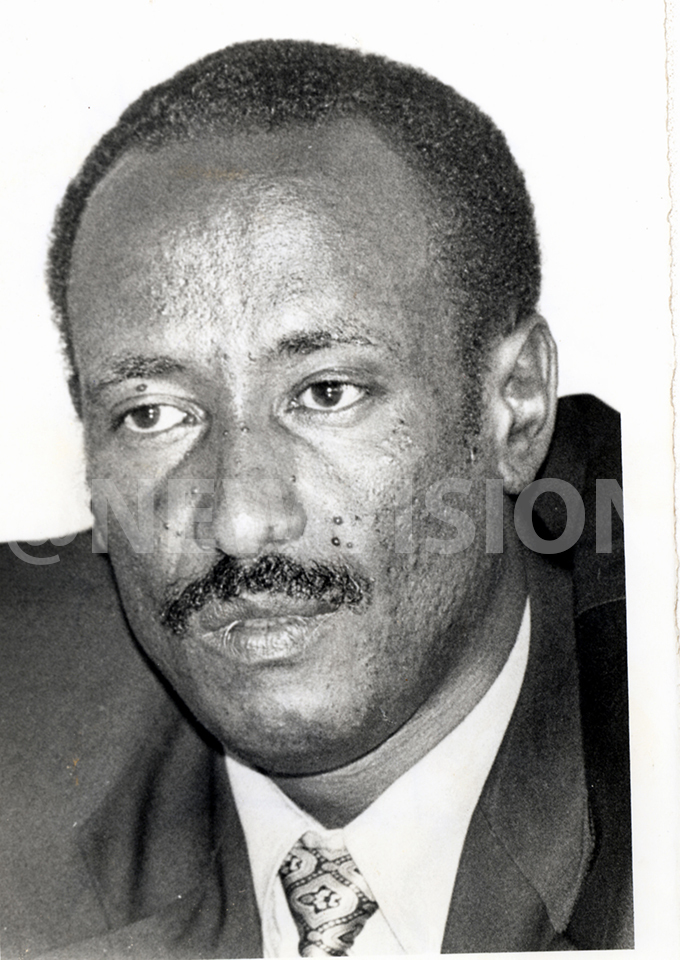
Journey to the bush
Instead of going to Moyo where he had been posted, he was picked up by then 2nd Lt. (now Lt. Gen.) Katumba Wamala and driven to a ‘safe house' in Mbuya where combatants going to the bush used to converge. The group then journeyed through Buwambo to a link point near Matugga.
This was in July 1981, five months after the start of the war. "It was like a reunion since I found many of my former comrades there," he says.
Asked if he thought the 50 or so soldiers he met in the bush had the ability to capture power, Saleh replies: "I was not thinking about the future. With them, I felt safe. I was enjoying myself," he says. Saleh says once he saw the involvement of the civilians and the elaborate structures, he realised that the mission was possible.
Saleh soon became one of the toasts of the revolution, leading fighters into many successful battles of the guerrilla war. He was appointed commander of the Mobile Force and specifically the decoy that was an element of the Mobile Force. In February 1983, he almost met his Waterloo at Bukalabi.
Saleh recalls, contrary to some reports, that the attack on UNLA soldiers in Bukalabi near Semuto was forced on the chairman (Museveni) by his commanders and was not well-planned. At the time, the NRA had secured a big swath of territory. The attack on Bukalabi was pushed for territorial gain.
"We commanders did not think that we could lose territory and yet the Museveni's view was that we should have withdrawn," he says.
Apparently, the last intelligence before the attack was wrong and Saleh's unit entered the first enemy defenses without realising it. Saleh rallied his men to fight on, until he realised that many had been shot, some dead. Pondering his next move, he was shot three times in the arms.
He ordered the rest of the fighters to withdraw from battle. By that time, he had taken several bullets: his jacket had 18 bullet holes.
Saleh recalls: "That was bad. It was painful because it was the first time we left our dead in the battle field."
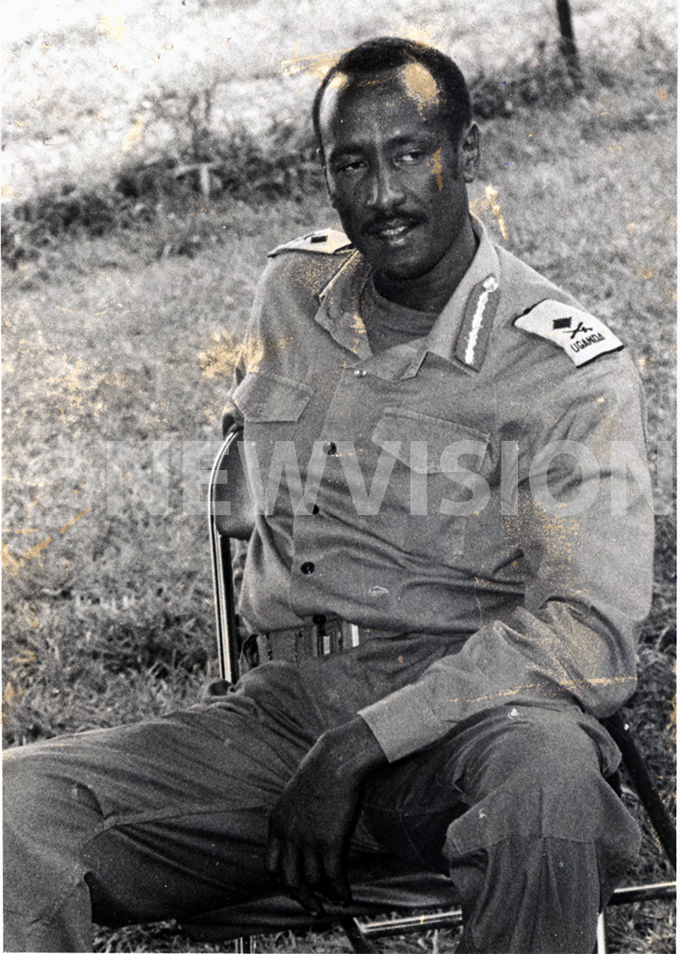
To war survivors in Luweero, Saleh's survival in Bukalabi was out of the ordinary. "He used his hands to stop the bullets. One of his hands produced a spear-like symbol whenever he opened it towards the UNLA soldiers," one resident said. Others claimed that Saleh turned into a cat and escaped.
He might have lost that battle, but to the adoring NRA supporters, he remained a hero. "True, my jacket had 18 bullet holes. Only three or four got into my body. It was God's plan, He wanted me alive," he says today.
But Saleh had a reputation as a super human being because of his almost suicidal antics on the battle field. Some described him as a man possessed in battle; that he had a ‘big insect' in his head that scratched him to carry out suicidal missions.
Some claim that during battle, he could disappear only to be seen standing on an anthill or even up on a tree, smoking away as he monitored the progress.
"His adage was ‘death before dishonour'," says retired Capt. Godfrey Kangave, who was part of Saleh's mobile unit.
In February 1984, Saleh led another big assault on Masindi barracks where he grabbed over 700 assorted weapons and months later. During an attack on Kabamba, his unit seized an assortment of over 600 weapons.
Saleh says these daring fetes were eased by 50% enforcement of regulations and 50% ideological beliefs. "We had a strict code of conduct on one hand and a very strong ideology on the other," he says.
Saleh was sometimes mischievous. In the third NRA attack on Kabamba barracks, for example, he engaged a UNLA soldier guarding the armoury in cheeky talk — including a promise of promotion to the rank of major if he stopped his resistance!
"He walked with and carried this feeling and picture of invincibility, which with time, he transferred to his fighters. In many battles like at Kembogo, he made us feel invincible against better armed government soldiers," Kangave said.
On his part, Saleh says: "In all battles, I was just lucky, with very good training, very good commanders in charge and very good fighters."
The Kembogo battle turned out to be the last nail in the coffin of the UNLA; a culmination of several weeks of a cat-and-mouse game between the NRA' s Mobile Brigade and the UNLA's Special Brigade. Saleh humiliated the UNLA force commanded by John Ogole.
"Ogole believed that if you finally defeated Saleh's mobile brigade, then the NRA would be no more," recounted Maj. Gen. Pecos Kuteesa, who commanded the 1st battalion of the mobile brigade. However, Saleh triumphed.
Saleh was again in charge when NRA battled UNLA soldiers in Masaka, brazenly driving into the town ahead of his fighters who were following him on foot. Normally, the commander comes in last, but that was not for Saleh.
For the final prize — the capture of Kampala — Saleh says: "I was privileged to have drawn the plan for the attack on Kampala and it was fully accepted by the CHC."
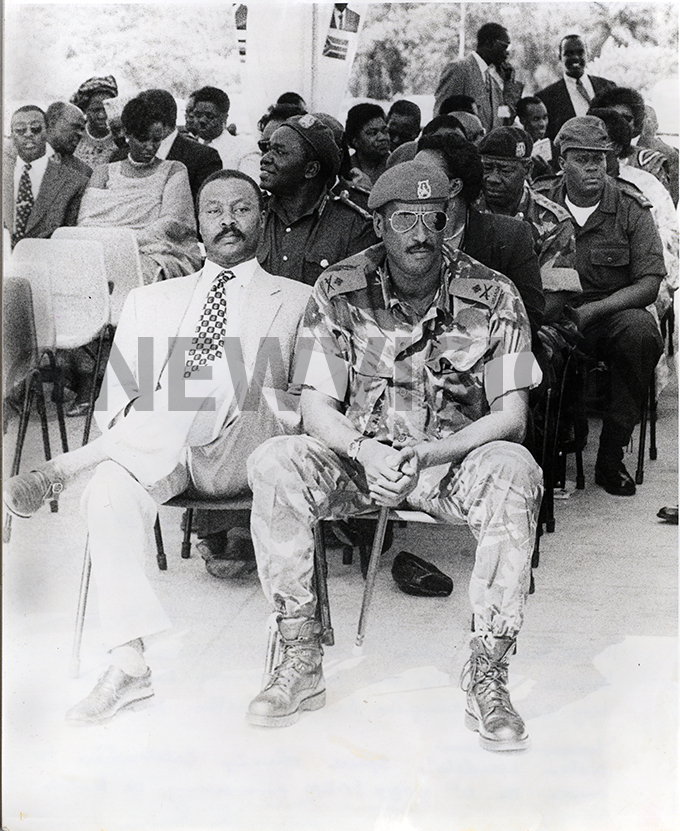
After the war
When the war ended, Saleh later served as army commander in 1988 and retired in 1989, although he often has periodic recalls in the army. In the 1990s, he initiated the failed peace talks with the LRA and was part of the team that revived dialogue with the rebels in mid-2000.
In the 1990s, Saleh returned to Bukalabi and tried to start a coffee business. Today, he engages in maize farming and processing in Kapeeka, Nakaseke district. "I am happy I remained so that I can contribute to social-economic transformation of the Luweero triangle," he says.
During retirement, he also went back to school and completed his A' level. In 2003, he was in the pioneer class at the prestigious Uganda Senior Command and Staff College, Kimaka.
Once, at a campaign rally, Saleh revealed his dream to be a minister. He appealed to the electorate to return Museveni to power, saying he might be lucky to get a cabinet post. "Nze Ndifa sibadeeko minister, (Will I die without ever being a minister)," was his exact statement.
In 2006, his dream came true. However, he realised that his dream of fighting poverty among the Ugandans could not be easily achieved because of the bureaucracies in the Government. "When I joined the ministry, I thought that all that I needed to do was to make money available to the poor people, but that was not the case," he said. He resigned his post after 33 months. He now concentrates on personal efforts to empower farmers.
Scandal-scarred
In 1998, the general was linked to one of the most haunting scandals in the army, involving purchase of used helicopter gunships. He explains that although the suppliers gave him ‘a cut' in order to get the contract, he informed his superiors and returned the money to the Government.
"I was being a good Christian by confessing, but things turned around," he says.
His involvement in the purchase of the Uganda Commercial Bank (UCB) also tainted his person. He explains: "In this case, I could not just look on as a Ugandan bank was being taken over by foreigners. I went in because I thought it was purely a national cause."
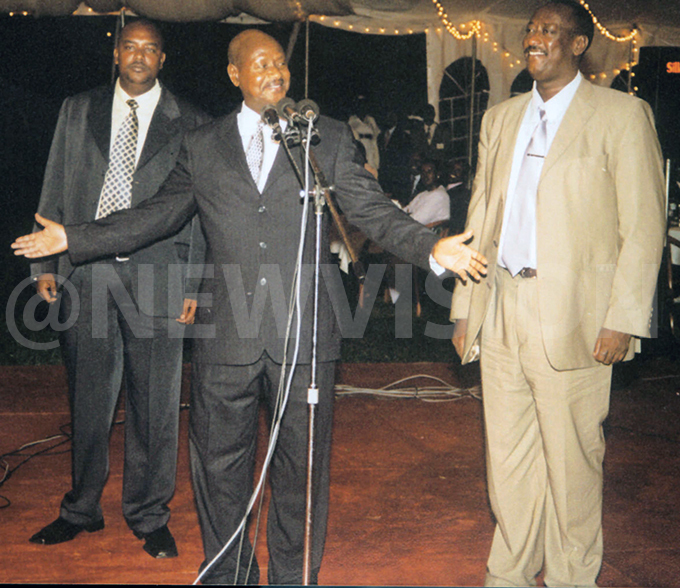 Uganda's President Yoweri Museveni (c) and his brothers, Salim Saleh (R) and Nowomugisha Nzeire Kaguta, at Museveni's daughter Patience's wedding reception in Kampala, July 20,2002.
Uganda's President Yoweri Museveni (c) and his brothers, Salim Saleh (R) and Nowomugisha Nzeire Kaguta, at Museveni's daughter Patience's wedding reception in Kampala, July 20,2002.
Behind the soldier
Saleh is married to Jovial Saleh and they have children. Some of his children are young adults who have made Saleh a dotting grandfather. Like many parents, he goes through the usual headaches with the younger children who are still in school. When he was away soldiering, Jovial was cast into the role of head of the family, molding her into the pillar she is today.
It is hard to know what is behind Saleh's relaxed appearance, but he often looks calmer when puffing at his favourite pack of cigarretes. At his side will always be a pen, a notebook and a cellphone. He keeps scores of scrapbooks and can quickly find notes he wrote five years ago in an unmarked notebook at the flip of a page, perhaps a trait he could have carried from his days as a commander.
He chooses his wardrobe carefully and yet he is not that fancy, if you consider that his cellphone is one of the older Nokia models.
